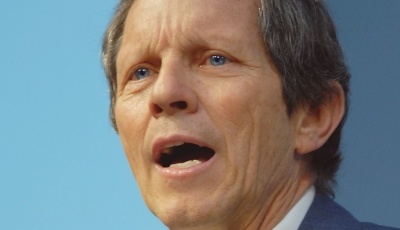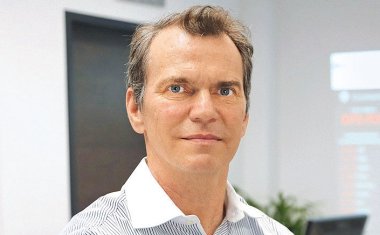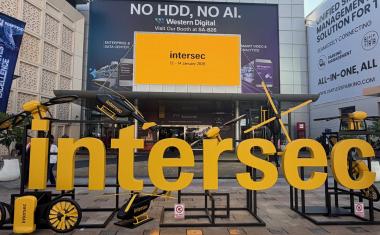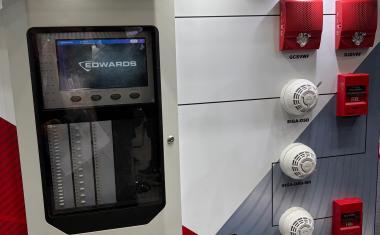Cargo und Passenger Screening in the Focus
Cargo und Passenger Screening processes are in the focus of various organisations after the events in Yemen.US-Department of Homeland Security (DHS) Secretary Janet Napolitano toda...

Cargo und Passenger Screening processes are in the focus of various organisations after the events in Yemen. US-Department of Homeland Security (DHS) Secretary Janet Napolitano today spoke with leaders from global shipping companies, including UPS, DHL, FedEx and TNT, to discuss enhanced air cargo screening and security efforts following last week's disrupted attempt to conceal and ship explosive devices onboard aircraft bound for the United States. Earlier this week the International Air Transport Association (IATA) called on security regulators around the world to work together to make the skies more secure by addressing the challenges related to cargo security and data collection.
During the call, Secretary Napolitano underscored her commitment to partnering with the shipping industry to strengthen cargo security through enhanced screening and preventative measures, including terrorism awareness training for personnel. Together, UPS, DHL, FedEx and TNT employ more than one million employees in hundreds of countries around the world.
Following her call with shipping industry leaders, Secretary Napolitano spoke with International Air Transport Association (IATA) Director General Giovanni Bisignani about the Department's continued collaboration with our private sector partners and international allies to secure the global supply chain through a layered security approach to identify, deter and disrupt threats. She also reiterated her commitment to ongoing coordination with the airline and shipping industries to uphold TSA security standards, including the vetting of personnel with access to cargo, employee training, and cargo screening procedures.
More information:
- EU Commission: Communication assessing the use of security scanners at European airports
- Article on Effectively Scanning Trucks and Trailers
- Article on Scanning Vehicles on the Move for Organic Materials
- Article: Fundamental Questions Concerning Aviation Security
AVSEC Conference in Frankfurt
Earlier this week the International Air Transport Association (IATA) called on security regulators around the world to work together to make the skies more secure by addressing the challenges related to cargo security and data collection. IATA also unveiled plans to lead a global effort to build an airport checkpoint of the future, which will tighten security and ease passenger hassle.
"We are much more secure than in 2001, but there is room for improvement," said Giovanni Bisignani, IATA's Director General and CEO at the opening of AVSEC World in Frankfurt, Germany. Bisignani identified several areas where more progress is needed to further improve aviation security and address passenger frustrations:
Cargo Security: "The events in Yemen have put cargo security at the top of our agenda. Air freight drives the world economy. The products that we carry represent 35% of the total value of goods traded internationally. In 2009, airlines carried 26 million tonnes of international cargo. By 2014, that will increase to 38 million tonnes. Transporting these goods safely, securely and efficiently is critical," said Bisignani who commended all the governments for their swift, coordinated and targeted response. Bisignani noted four principles to drive air cargo security programs.
Supply Chain Approach: "The entire supply chain, from manufacturer to airport, has a responsibility for secure shipments. The supply chain approach must be driven by government and industry cooperation on investment, processes, technology and risk assessment. Many countries, including the UK and the US, have advanced supply chain solutions. The industry is committed. IATA's Secure Freight program is helping to promote this critical component of our cargo security efforts," said Bisignani.
Technology: "Airport screening cannot be our first line of defense but it is an effective complement to intelligence and supply chain solutions. Currently, there is no government certified technology to screen standard size pallets and large items. There is some promising technology but it is taking far too long to move from the laboratory to the airport. We must speed up the process," said Bisignani.
E-freight: IATA's e-freight program gives governments an important information tool. "By converting some 20 freight documents to an electronic format, we are improving efficiency and providing the tool for accurate insight into who is shipping what and where. As the industry increases e-freight volumes, governments must expand the use of e-freight from inbound shipments to outbound as well, and use this data to intelligently manage freight security," said Bisignani.
Risk: Industry has cooperated with governments to help mitigate risks identified through their intelligence operations. "But effective solutions are not developed unilaterally or in haste. We have seen many cases where these have unintended consequences. It is still early days. Industry is cooperating with government directives on targeted actions for Yemen-origin cargo. If there are any longer-term adjustments required, we must do so with all the facts in hand with measures targeted to meet specific risks," said Bisignani.
Checkpoint of the Future: IATA called on regulators and industry to collaborate to modernize the 40 year old airport screening process. IATA has a short and long-term vision for the next generation checkpoint. In the short-term, IATA is already working on concepts and a new process.
"Belts, shoes and shampoos are not the problem. We must shift the screening focus from looking for bad objects to finding terrorists. To do this effectively, we need intelligence and technology at the checkpoint. The enormous amount of data that we collect on passengers can help governments to identify risks. The overall process must become much quicker and more convenient. It is not acceptable to treat passengers as terrorists until they prove themselves innocent," said Bisignani.
"My long-term vision is for passengers to be able to get from the entrance of the airport to the door of the aircraft in a seamless and uninterrupted process," said Bisignani.
Standardize Data Collection: Data is critical to aviation security as its effective use helps governments to vet travelers and identify threats. Through the International Civil Aviation Organization (ICAO), governments agreed to global standards for data elements and a process to collect that information. Not all governments follow the standards which are adding to the $5.9 billion that airlines spend annually on security. It takes about $1 million to build systems for each country with a non-standard data requirement. Adding just one non-standard element to data collection is a $50,000 system cost. Bisignani highlighted concerns about new data requirements in India, China, South Korea and Mexico. "All these exceptions consume money and resources but none improve security or border control. The challenge is to work with governments to implement harmonized standards," said Bisignani.
Bisignani also reported on progress during the year sparked by the 25 December 2009 failed terrorist attack on a Delta jet bound for Detroit. In January 2010, IATA hosted a security summit in Geneva to launch a new era of industry-government cooperation and action. At the meeting, IATA and airline chief executives presented the US Homeland Security Secretary Janet Napolitano and ICAO Director General Raymond Benjamin with five principles. "Our actions should take a risk-based approach, involve globally coordinated action by all stakeholders, harmonize best practice across borders, be practical to implement, and be strategically focused on defined objectives," said Bisignani.
IATA presented five recommendations based on these principles:
- Implement formal consultation with all airlines including non-US carriers
- Refine existing emergency orders to address the international environment
- Streamline the data collection process
- Strengthen government to government outreach for greater harmonization and coordination
- Start developing a next generation checkpoint
"Over the past year, Secretary Napolitano and other government leaders have understood that working with industry is the only way forward. The US recently created an International Working Group for Aviation Security and the ICAO Executive Committee last month agreed that industry and government objectives should be aligned. We have seen the start of a new era of cooperation. But progress in words means nothing if there are no follow-up actions," said Bisignani.
"Defining coordinated security responses with collaboration between industry and government have made more progress in the last 10 months than at any time since the tragic events of 2001. Governments and industry are now aligned with a common goal. We must use this momentum to move from words and agreements, to actions and results," said Bisignani.









